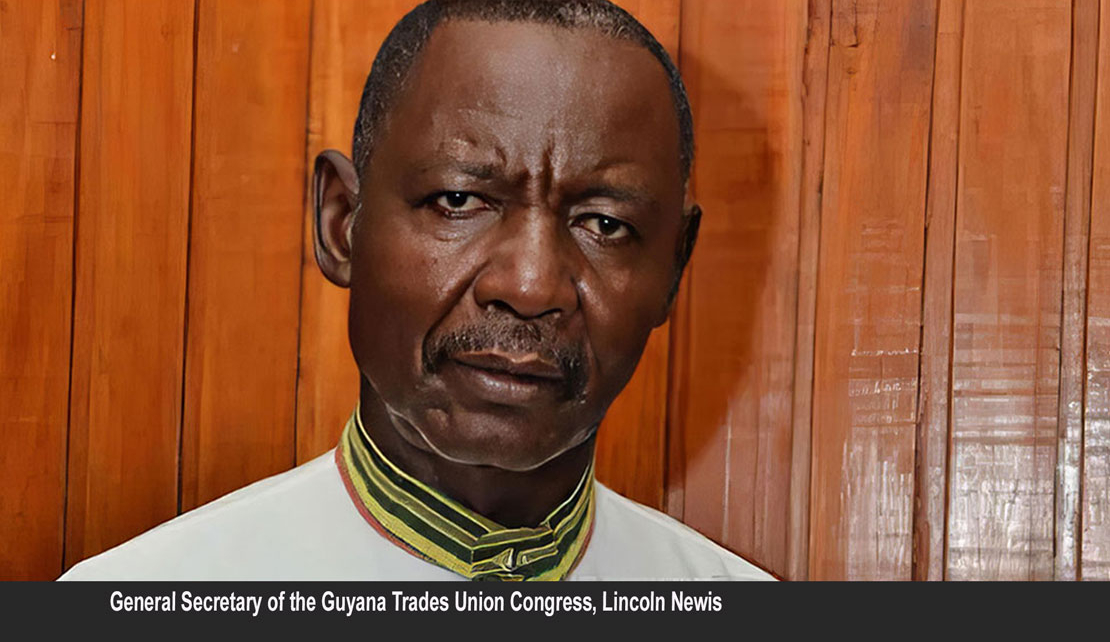GUYANA | GTUC's Lincoln Lewis speaks on Jamaica's Rebel Radio about worker's rights in Guyana

GEORGETOWN, Guyana, March 28, 2024 - The matter of workers rights and the challenges faced by workers has taken a prominent role in Guyana which is said to be the fastest growing economy in the Caribbean.
General Secretary of the Guyana Trade Union Congress (GTUC), Mr. Lincoln Lewis, recently shared his insights on the current state of labour relations and the challenges workers are facing in Guyana on Rebel Radio in Jamaica.
In a recent and riveting conversation with Desmond Richards of Rebel Radio Mr. Lewis shared his insights on the current state of labour relations and the challenges workers are facing in Guyana.
Lewis highlighted the impact of the burgeoning oil and gas industry and the new economic dynamics it introduces, emphasising the new challenges that come with these developments.
“We are living in a period where the implications of a new economic sector, particularly oil and gas, are significant.
There are new challenges, but I believe these challenges are surmountable,” Lewis stated, pointing out the need for adaptation in labour practices, including the need for fair employee contracts and the preservation of workers’ rights to discuss their salaries and join unions.
The GTUC General Secretary expressed concerns over the apparent impasse between the Guyana Teachers Union (GTU) and the Ministry of Education. According to Mr. Lewis, the ministry has taken a stance that undermines the traditional negotiation process with unions, which he views as a worrying trend not only for the education sector but for labour relations across the board.

Mr. Lewis also shed light on the broader regional challenges, noting that the Caribbean, much like Guyana, is navigating through turbulent labour times.
He called for a change in attitude towards labour and the need for a more inclusive approach that recognises the dignity and rights of the ordinary worker.
“The arrival of industries like oil and gas should not mean the erosion of workers’ rights. Unions are facing what can only be described as anti-union sentiments, and this is not just from the private sector but also from governmental actions,” he lamented.
Diving deeper into the GTU’s case, Mr. Lewis detailed the ongoing struggle of teachers in Guyana who have been seeking better salaries and working conditions since 2019, a struggle that has been met with resistance and a lack of constructive dialogue from the government.
The GTU’s attempts at negotiation have been consistently ignored, according to Lewis, leading to a situation where legal action seems to be the only remaining course for resolution.
As the conversation concluded, Mr. Lewis reaffirmed his commitment to the fight for fair labor practices and the rights of workers in Guyana, stating, “We’re ready to go, ready to keep the fight alive. It’s about keeping the fire burning for what is right and just in our workplace and our society.”
